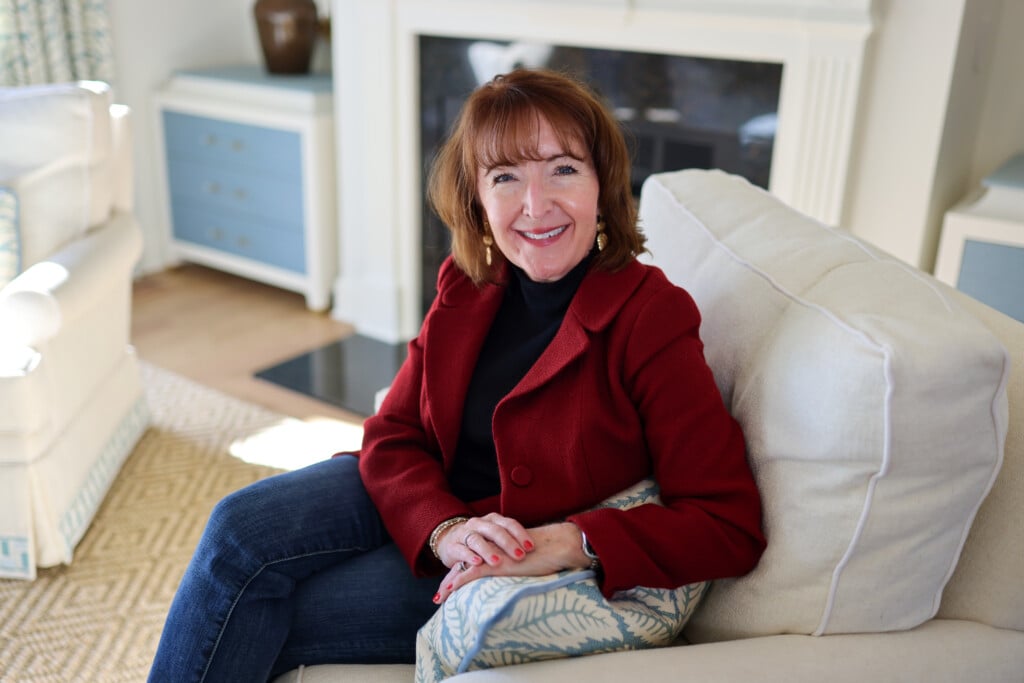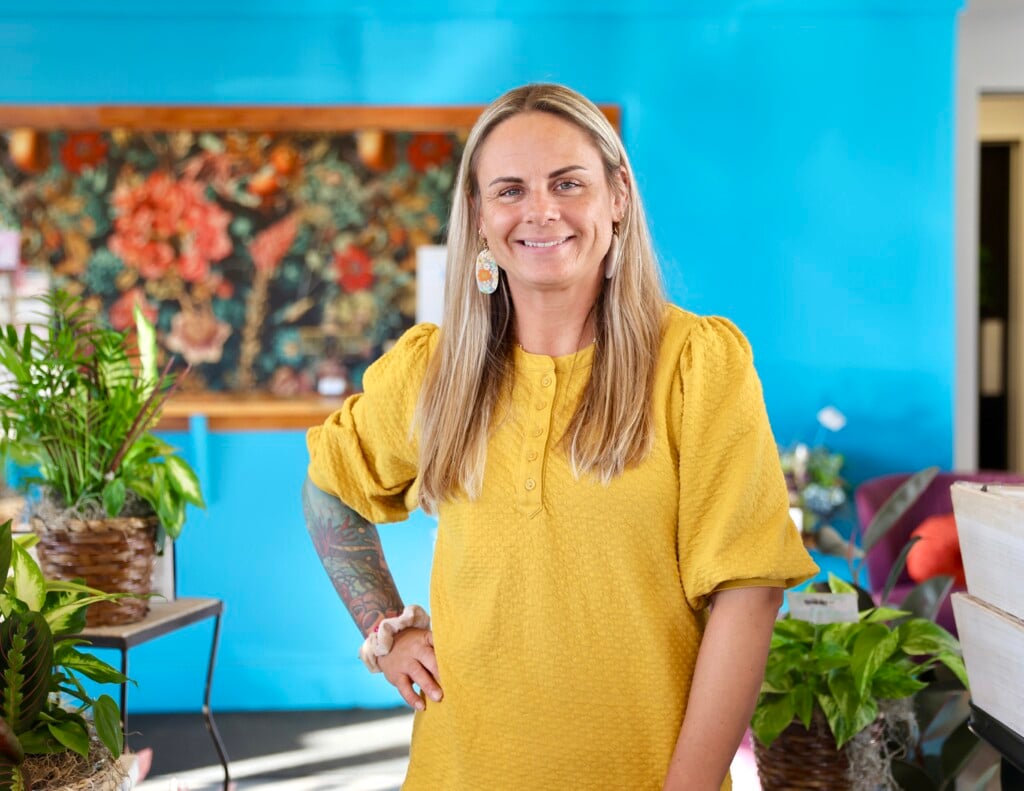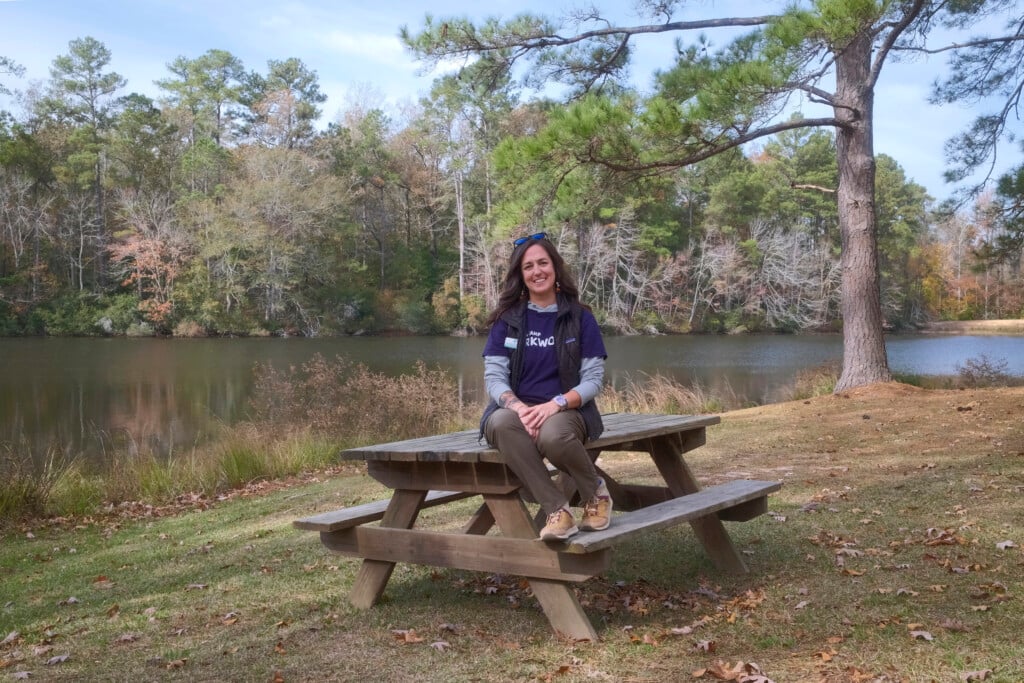A People’s Hart
Emilie Hart marks decade directing local Catholic Charities
From the time she was a little girl, far before she could verbalize it, EMILIE HART knew she wanted to be a social worker to help people.
“It’s a role I had in my own family. I tended to be the people’s person,” she says. “My parents instilled values of service and helping others.”
This February, Hart marks ten years as the director of Catholic Charities of the Cape Fear Region covering Brunswick, New Hanover, Columbus, Bladen, Duplin, and Pender counties. Under her leadership, the regional office helps approximately 13,000 individuals of all faiths or a no-faith tradition annually through disaster, emergency, and food pantry services, in addition to immigration legal services.
Hart, the oldest of three children, grew up in Montreal. French was her first language. Her family, the only one to leave her close-knit town, immigrated to the United States when she was in middle school. She moved often because of her father’s job – Michigan, New Jersey, North Carolina – and eventually Hart landed at the University of North Carolina at Greensboro for her bachelor’s degree in social work. “The hardest part was choosing the setting that I wanted to work in,” she says.
After graduation, Hart worked at Graham High School in Alamance County, for five years before she headed to the University of Pennsylvania for her master’s in social work. She spent the next seventeen years in various social services settings including a women’s prison in New Jersey, a refugee settlement in Philadelphia with survivors of torture from various war-torn countries around the world, and a mental health facility for dually-diagnosed adults in New Jersey.
When the directorship at Catholic Charities became available, Hart knew that her past experiences with the criminal justice system gave her the broad base necessary for the role. “Catholic Charities enables me the freedom and flexibility to run an organization and develop programs around specific needs in the community,” she says. “I still have direct client impact, which is very important to me. I spend time in the field so that I know why I am writing a grant or adjusting the budget.”
Over the past ten years, Hart has grown her team to thirteen from an original three who worked out of an 800-square-foot house on Princess Place that was focused solely on immigration case management and food insecurity.
“The team, as well as our ability to support, has really grown,” she says. “We deliver 400 healthy food boxes per week, and we have supported the victims of Hurricane Matthew in 2016, Hurricane Florence in 2018, the tornado in Brunswick County in 2021, and most recently the victims of Potential Tropical Cyclone Eight.”
In November, Hart was deployed by Catholic Charities to eastern Tennessee to work with survivors of Hurricane Helene. She spent time in four communities identifying survivors and meeting their needs as well as setting up a new disaster services program and writing a strategic plan.
Hart says that the most important issue facing Catholic Charities today is affordable housing. After successfully piloting the fabrication of a tiny house for a single disabled woman in Columbus County, Catholic Charities is now building a second home for a family of four.
“Our volunteer base is critical to keeping the costs low,” says Hart. A team from AmeriCorps completed the groundbreaking and block work, and this month a volunteer team from Baptists on Mission will construct walls.
The family is staying in a camper on-site. “They are very involved and greatly appreciative,” says Hart. The overarching plan is to replicate what Hart describes as wrap-around service. “Knowing that the homeless assistance approach Housing First works, we can put additional things in place to keep families safe and self-sufficient,” she says.
Hart lives in Wilmington with her husband and two children, twenty-one and sixteen. She enjoys spending time at the beach, loves to exercise, and going kayaking. She also boxes three times every week. “That’s my stress relief, I disconnect completely,” she says.
While she starts each day with a set plan and schedule, Hart usually ends up throwing it all out the window. “I come in recharged every day with an open mind,” she says, “ready to meet people where they are on an individual basis bringing creative solutions to complex issues.”
To view more of photographer Daria Amato’s work, go to dariaphoto.com
Want more WILMA? Click here to sign up for our WILMA newsletters and announcements.




